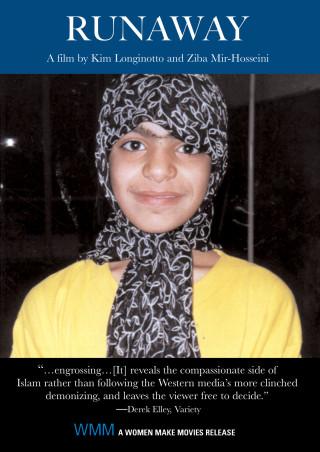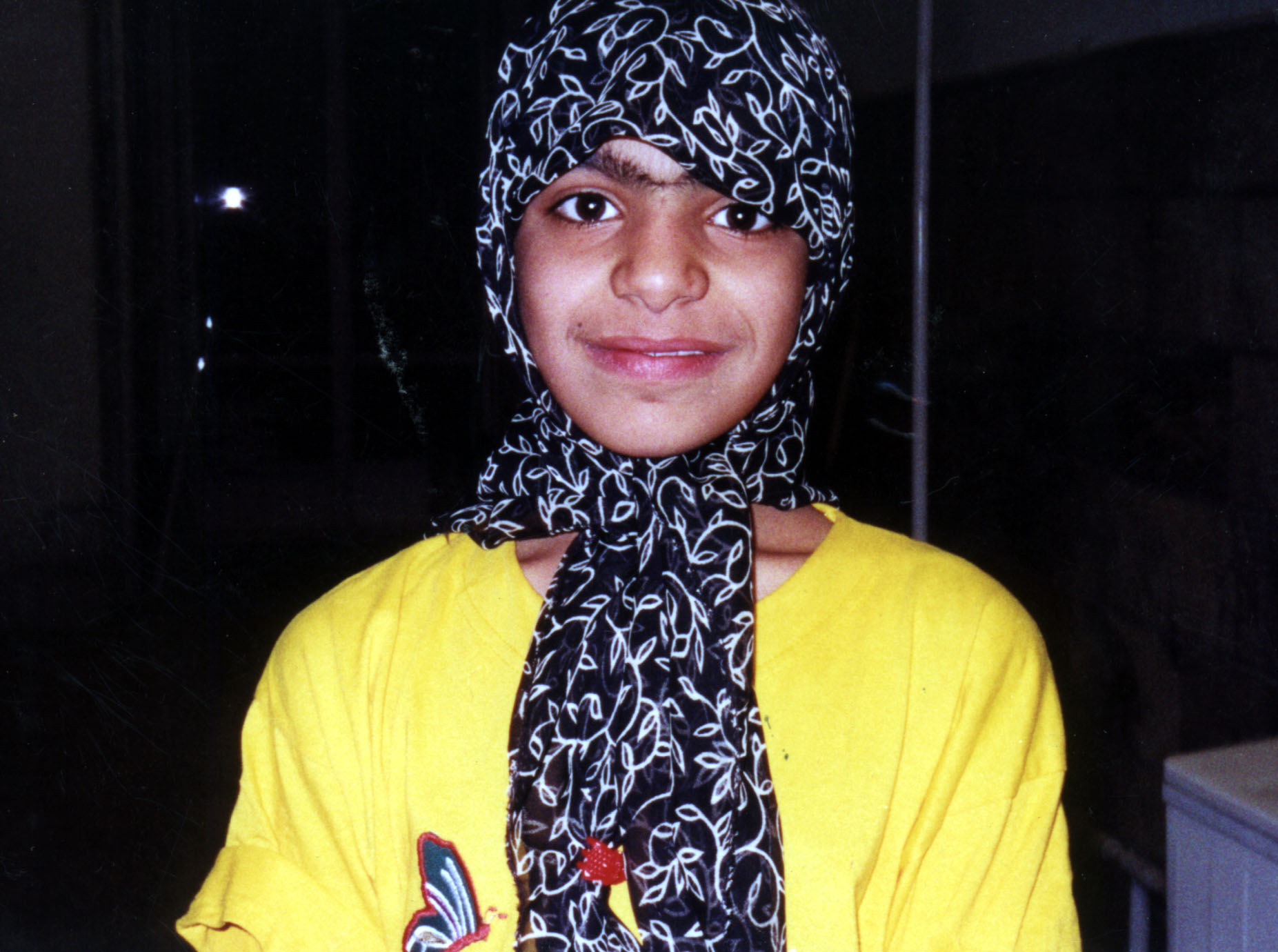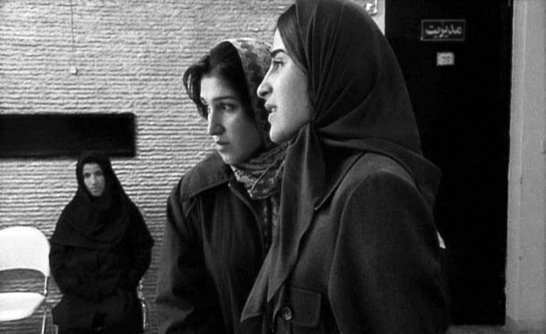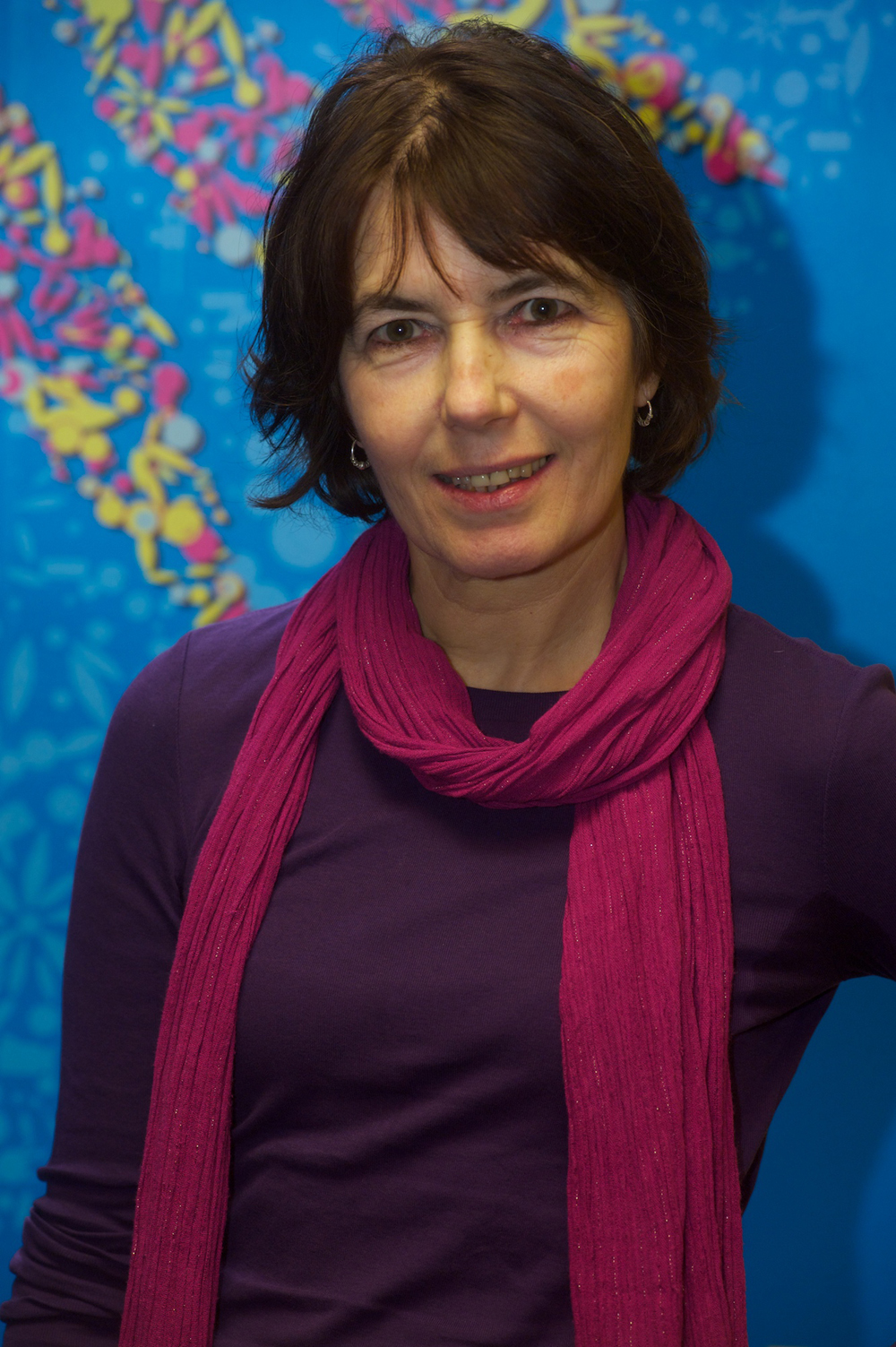Array
(
[id] => 554
[title] => Dreamcatcher
[link] => stdClass Object
(
[url] => https://www.wmm.com/catalog/film/dreamcatcher
[title] => more
)
[image_thumb] => https://www.wmm.com/storage/films/dreamcatcher/320x-dcatch_hires1.png
[created_at] => Array
(
)
[year_released] => 2015
[text] => “You got any dreams you wanna catch?” Sundance award winner DREAMCATCHER takes us into a hidden world of prostitution and sexual trafficking through the eyes of one of its survivors, Brenda Myers-Powell. A former teenage prostitute with a drug habit, Brenda defied the odds to become a powerful advocate for change in her community, and works to help women and young girls break the cycle of sexual abuse and exploitation. DREAMCATCHER lays bare the hidden violence that devastates the lives of these young women, their families and the communities where they live in Chicago and Brenda’s unflinching intervention that turns these desperate lives around.
With unprecedented access, multi-award winning director, Kim Longinotto (SISTERS IN LAW, ROUGH AUNTIES, SALMA) paints a vivid portrait of a community struggling to come to terms with some of its most painful truths and of the extraordinary woman who uses her past to inspire others to survive. With warmth and humor, Brenda gives hope to those who have none in the four magic words she offers up to everyone she meets: “It’s not your fault.”
[image] => https://www.wmm.com/storage/films/dreamcatcher/dcatch_hires1.jpg
)
Dreamcatcher
“You got any dreams you wanna catch?” Sundance award winner DREAMCATCHER takes us into a hidden world of prostitution and sexual trafficking through the eyes of one of its survivors, Brenda Myers-Powell. A former teenage prostitute with a drug habit, Brenda defied the odds to become a powerful advocate for change in her community, and works to help women and young girls break the cycle of sexual abuse and exploitation. DREAMCATCHER lays bare the hidden violence that devastates the lives of these young women, their families and the communities where they live in Chicago and Brenda’s unflinching intervention that turns these desperate lives around.
With unprecedented access, multi-award winning director, Kim Longinotto (SISTERS IN LAW, ROUGH AUNTIES, SALMA) paints a vivid portrait of a community struggling to come to terms with some of its most painful truths and of the extraordinary woman who uses her past to inspire others to survive. With warmth and humor, Brenda gives hope to those who have none in the four magic words she offers up to everyone she meets: “It’s not your fault.”
Learn more
Array
(
[id] => 488
[title] => Salma
[link] => stdClass Object
(
[url] => https://www.wmm.com/catalog/film/salma
[title] => more
)
[image_thumb] => https://www.wmm.com/storage/films/salma/320x-salma_hires4.png
[created_at] => Array
(
)
[year_released] => 2013
[text] => When Salma, a young Muslim girl in a south Indian village, was 13 years old, her family locked her up for 25 years, forbidding her to study and forcing her into marriage. During that time, words were Salma’s salvation. She began covertly composing poems on scraps of paper and, through an intricate system, was able to sneak them out of the house, eventually getting them into the hands of a publisher. Against the odds, Salma became the most famous Tamil poet: the first step to discovering her own freedom and challenging the traditions and code of conduct in her village.
As with her other work (PINK SARIS, ROUGH AUNTIES, SISTERS IN LAW), master documentarian Kim Longinotto trains her camera on an iconoclastic woman. Salma’s extraordinary story is one of courage and resilience. Salma has hopes for a different life for the next generation of girls, but as she witnesses, familial ties run deep, and change happens very slowly. SALMA helps us understand why the goal of global education of girls is one the most critical areas of empowerment and development of women worldwide.
[image] => https://www.wmm.com/storage/films/salma/salma_hires4.jpg
)
Salma
When Salma, a young Muslim girl in a south Indian village, was 13 years old, her family locked her up for 25 years, forbidding her to study and forcing her into marriage. During that time, words were Salma’s salvation. She began covertly composing poems on scraps of paper and, through an intricate system, was able to sneak them out of the house, eventually getting them into the hands of a publisher. Against the odds, Salma became the most famous Tamil poet: the first step to discovering her own freedom and challenging the traditions and code of conduct in her village.
As with her other work (PINK SARIS, ROUGH AUNTIES, SISTERS IN LAW), master documentarian Kim Longinotto trains her camera on an iconoclastic woman. Salma’s extraordinary story is one of courage and resilience. Salma has hopes for a different life for the next generation of girls, but as she witnesses, familial ties run deep, and change happens very slowly. SALMA helps us understand why the goal of global education of girls is one the most critical areas of empowerment and development of women worldwide.
Learn more
Array
(
[id] => 280
[title] => Gaea Girls
[link] => stdClass Object
(
[url] => https://www.wmm.com/catalog/film/gaea-girls
[title] => more
)
[created_at] => Array
(
)
[year_released] => 2000
[text] => "This fascinating film follows the physically grueling and mentally exhausting training regimen of several young wanna-be GAEA GIRLS, a group of Japanese women wrestlers. The idea of them may seem like a total oxymoron in a country where women are usually regarded as docile and subservient. However, in training and in the arena, the female wrestlers depicted in this film are just as violent as any member of the World Wrestling Federation, and the blood that’s drawn is very real indeed. One recruit, Takeuchi, endures ritual humiliation not seen on screen since the boot camp sequences of FULL METAL JACKET. In DIVORCE IRANIAN STYLE, Kim Longinotto cinematically explored the previously unexplored world of the Tehran divorce courts. Working with co-director Jano Williams, Longinotto has been given access to shoot an insider’s verité account of this closely guarded universe." - Chicago Film Festival
[image] => https://www.wmm.com/storage/films/gaea-girls/c525.JPG
[image_thumb] => https://www.wmm.com/storage/films/gaea-girls/320x-c525.JPG
)
Gaea Girls
"This fascinating film follows the physically grueling and mentally exhausting training regimen of several young wanna-be GAEA GIRLS, a group of Japanese women wrestlers. The idea of them may seem like a total oxymoron in a country where women are usually regarded as docile and subservient. However, in training and in the arena, the female wrestlers depicted in this film are just as violent as any member of the World Wrestling Federation, and the blood that’s drawn is very real indeed. One recruit, Takeuchi, endures ritual humiliation not seen on screen since the boot camp sequences of FULL METAL JACKET. In DIVORCE IRANIAN STYLE, Kim Longinotto cinematically explored the previously unexplored world of the Tehran divorce courts. Working with co-director Jano Williams, Longinotto has been given access to shoot an insider’s verité account of this closely guarded universe." - Chicago Film Festival
Learn more
Array
(
[id] => 118
[title] => Shinjuku Boys
[link] => stdClass Object
(
[url] => https://www.wmm.com/catalog/film/shinjuku-boys
[title] => more
)
[image_thumb] => https://www.wmm.com/storage/films/shinjuku-boys/320x-shinju_hires.png
[created_at] => Array
(
)
[year_released] => 1995
[text] => This documentary from Kim Longinoto and Jano Williams (DREAM GIRLS), offers rich insight into gender and sexuality in Japan via a candid portrait of Kazuki, Tatsu, and Gaish, three trans masculine hosts working at the New Marilyn Club in Tokyo’s bustling Shinjuku district. As the film follows them at home and on the job, all three (who self-describe themselves as onabe) talk frankly about their lives, revealing their views on love, sex, sexual orientation, traditional relationships, and identity. Alternating with these illuminating interviews are fabulous sequences shot inside the club, a place patronized largely by heterosexual, cisgender women.
[image] => https://www.wmm.com/storage/films/shinjuku-boys/shinju_hires.jpg
)
Shinjuku Boys
This documentary from Kim Longinoto and Jano Williams (DREAM GIRLS), offers rich insight into gender and sexuality in Japan via a candid portrait of Kazuki, Tatsu, and Gaish, three trans masculine hosts working at the New Marilyn Club in Tokyo’s bustling Shinjuku district. As the film follows them at home and on the job, all three (who self-describe themselves as onabe) talk frankly about their lives, revealing their views on love, sex, sexual orientation, traditional relationships, and identity. Alternating with these illuminating interviews are fabulous sequences shot inside the club, a place patronized largely by heterosexual, cisgender women.
Learn more
Array
(
[id] => 113
[title] => Dream Girls
[link] => stdClass Object
(
[url] => https://www.wmm.com/catalog/film/dream-girls
[title] => more
)
[image_thumb] => https://www.wmm.com/storage/films/dream-girls/320x-dgirl_hires.png
[created_at] => Array
(
)
[year_released] => 1993
[text] => This fascinating documentary, produced for the BBC, opens a door into the spectacular world of the Takarazuka Revue, a highly successful musical theater company in Japan. Each year, thousands of girls apply to enter the male-run Takarazuka Music School. The few who are accepted endure years of a highly disciplined and reclusive existence before they can join the Revue, choosing male or female roles. DREAM GIRLS offers a compelling insight into gender and sexual identity and the contradictions experienced by Japanese women today.
[image] => https://www.wmm.com/storage/films/dream-girls/dgirl_hires.jpg
)
Dream Girls
This fascinating documentary, produced for the BBC, opens a door into the spectacular world of the Takarazuka Revue, a highly successful musical theater company in Japan. Each year, thousands of girls apply to enter the male-run Takarazuka Music School. The few who are accepted endure years of a highly disciplined and reclusive existence before they can join the Revue, choosing male or female roles. DREAM GIRLS offers a compelling insight into gender and sexual identity and the contradictions experienced by Japanese women today.
Learn more
Array
(
[id] => 38
[title] => The Good Wife of Tokyo
[link] => stdClass Object
(
[url] => https://www.wmm.com/catalog/film/the-good-wife-of-tokyo
[title] => more
)
[created_at] => Array
(
)
[year_released] => 1992
[text] => “Forget those demure ladies with fragrant fans and meet the new breed of Japanese women!” - Amanda Casson, London Film Festival. Kazuko Hohki goes back to Tokyo with her band, the ‘Frank Chickens’, after living in England for 15 years. This wry and delightful film records her re-experiencing of Japan after a long absence, examining traditional attitudes to women and those of Kazuko’s friends who are trying to live differently. “This is a remarkable film which will appeal to general audiences as well as educators teaching about women, the family and/or religion in contemporary Japan. It deserves to be widely shown.” — Japan Foundation Center for Global Partnership Center for Educational Media.
[image] => https://www.wmm.com/storage/films/the-good-wife-of-tokyo/cbe_c77.jpg
)
The Good Wife of Tokyo
“Forget those demure ladies with fragrant fans and meet the new breed of Japanese women!” - Amanda Casson, London Film Festival. Kazuko Hohki goes back to Tokyo with her band, the ‘Frank Chickens’, after living in England for 15 years. This wry and delightful film records her re-experiencing of Japan after a long absence, examining traditional attitudes to women and those of Kazuko’s friends who are trying to live differently. “This is a remarkable film which will appeal to general audiences as well as educators teaching about women, the family and/or religion in contemporary Japan. It deserves to be widely shown.” — Japan Foundation Center for Global Partnership Center for Educational Media.
Learn more
Array
(
[id] => 37
[title] => Eat the Kimono
[link] => stdClass Object
(
[url] => https://www.wmm.com/catalog/film/eat-the-kimono
[title] => more
)
[image_thumb] => https://www.wmm.com/storage/films/eat-the-kimono/320x-Kimono_highres.1.0.png
[created_at] => Array
(
)
[year_released] => 1989
[text] => EAT THE KIMONO is a brilliant documentary about Hanayagi Genshu, a Japanese feminist and avant-garde dancer and performer, who has spent her life defying her conservative culture’s contempt for independence and unconventionality. She denounced Emperor Hirohito as a war criminal, and dismissed death threats made against her by right-wing groups. “You mustn’t be eaten by the kimono,” says Genshu, making reference to the traditional Japanese dress designed to restrict movement for women, “You must eat the kimono, and gobble it up.” From the directors of THE GOOD WIFE OF TOKYO and HIDDEN FACES.
[image] => https://www.wmm.com/storage/films/eat-the-kimono/Kimono_highres.1.0.jpg
)
Eat the Kimono
EAT THE KIMONO is a brilliant documentary about Hanayagi Genshu, a Japanese feminist and avant-garde dancer and performer, who has spent her life defying her conservative culture’s contempt for independence and unconventionality. She denounced Emperor Hirohito as a war criminal, and dismissed death threats made against her by right-wing groups. “You mustn’t be eaten by the kimono,” says Genshu, making reference to the traditional Japanese dress designed to restrict movement for women, “You must eat the kimono, and gobble it up.” From the directors of THE GOOD WIFE OF TOKYO and HIDDEN FACES.
Learn more
Array
(
[id] => 19
[title] => Hidden Faces
[link] => stdClass Object
(
[url] => https://www.wmm.com/catalog/film/hidden-faces
[title] => more
)
[image_thumb] => https://www.wmm.com/storage/films/hidden-faces/320x-hiddenfaces.png
[created_at] => Array
(
)
[year_released] => 1990
[text] => Originally intended as a film about internationally renowned feminist writer Nawal El Saadawi, HIDDEN FACES develops into a fascinating portrayal of Egyptian women’s lives in Muslim society. In this collaborative documentary, Safaa Fathay, a young Egyptian woman living in Paris, returns home to interview the famed writer and activist, but becomes disillusioned with her. Illuminated by passages from El Saadawi’s work, the film follows Fathay’s journey to her family home and discovers similar complex frictions between modernity and tradition. Her mother’s decision to return to the veil after twenty years and her cousins’ clitoridectomies reveal a disturbing renewal of fundamentalism. This absorbing documentary broaches the contradictions of feminism in a Muslim environment; a startling, unforgettable picture of contemporary women in the Arab world.
[image] => https://www.wmm.com/storage/films/hidden-faces/hiddenfaces.jpg
)
Hidden Faces
Originally intended as a film about internationally renowned feminist writer Nawal El Saadawi, HIDDEN FACES develops into a fascinating portrayal of Egyptian women’s lives in Muslim society. In this collaborative documentary, Safaa Fathay, a young Egyptian woman living in Paris, returns home to interview the famed writer and activist, but becomes disillusioned with her. Illuminated by passages from El Saadawi’s work, the film follows Fathay’s journey to her family home and discovers similar complex frictions between modernity and tradition. Her mother’s decision to return to the veil after twenty years and her cousins’ clitoridectomies reveal a disturbing renewal of fundamentalism. This absorbing documentary broaches the contradictions of feminism in a Muslim environment; a startling, unforgettable picture of contemporary women in the Arab world.
Learn more
Array
(
[id] => 407
[title] => Rough Aunties
[link] => stdClass Object
(
[url] => https://www.wmm.com/catalog/film/rough-aunties
[title] => more
)
[image_thumb] => https://www.wmm.com/storage/films/rough-aunties/320x-RAUNT_Signature_hires1.png
[created_at] => Array
(
)
[year_released] => 2008
[text] => Fearless, feisty and resolute, the “Rough Aunties” are a remarkable group of women unwavering in their stand to protect and care for the abused, neglected and forgotten children of Durban, South Africa. This documentary by internationally acclaimed director Kim Longinotto (SISTERS IN LAW, DIVORCE IRANIAN STYLE) follows the outspoken, multiracial cadre of Thuli, Mildred, Sdudla, Eureka and Jackie, as they wage a daily battle against systemic apathy, corruption, and greed to help the most vulnerable and disenfranchised of their communities.
Despite the harsh realities of violence, poverty, and racism in the women’s work at the Bobbi Bear child welfare organization and in the heartaches of their personal lives, the portraits that emerge on screen are filled with grace, wisdom, friendship, and a deeply stirring conviction. Neither politics, nor social or racial divisions stand a chance against the united force of the women. Once again Longinotto has managed to bring us an intimate portrait of change from Africa, this time from post-apartheid South Africa, a nation being transformed with hope and energy into a new democracy.
[image] => https://www.wmm.com/storage/films/rough-aunties/RAUNT_Signature_hires1.jpg
)
Rough Aunties
Fearless, feisty and resolute, the “Rough Aunties” are a remarkable group of women unwavering in their stand to protect and care for the abused, neglected and forgotten children of Durban, South Africa. This documentary by internationally acclaimed director Kim Longinotto (SISTERS IN LAW, DIVORCE IRANIAN STYLE) follows the outspoken, multiracial cadre of Thuli, Mildred, Sdudla, Eureka and Jackie, as they wage a daily battle against systemic apathy, corruption, and greed to help the most vulnerable and disenfranchised of their communities.
Despite the harsh realities of violence, poverty, and racism in the women’s work at the Bobbi Bear child welfare organization and in the heartaches of their personal lives, the portraits that emerge on screen are filled with grace, wisdom, friendship, and a deeply stirring conviction. Neither politics, nor social or racial divisions stand a chance against the united force of the women. Once again Longinotto has managed to bring us an intimate portrait of change from Africa, this time from post-apartheid South Africa, a nation being transformed with hope and energy into a new democracy.
Learn more




